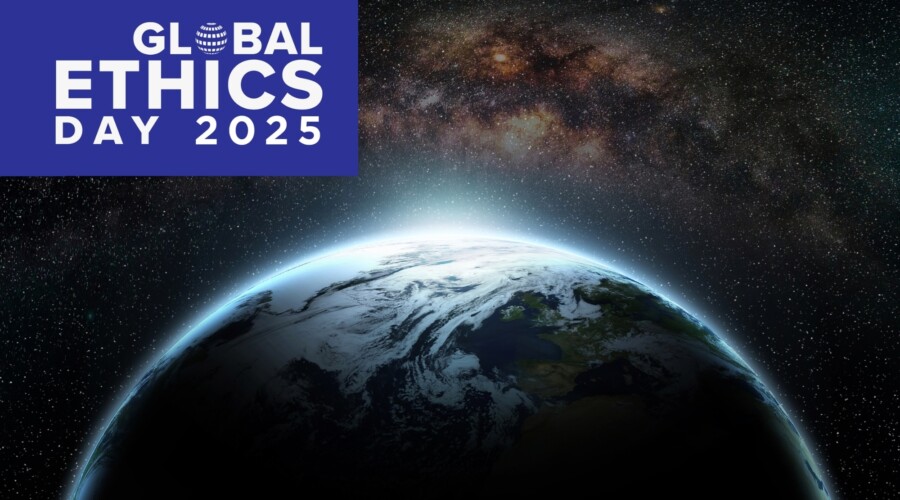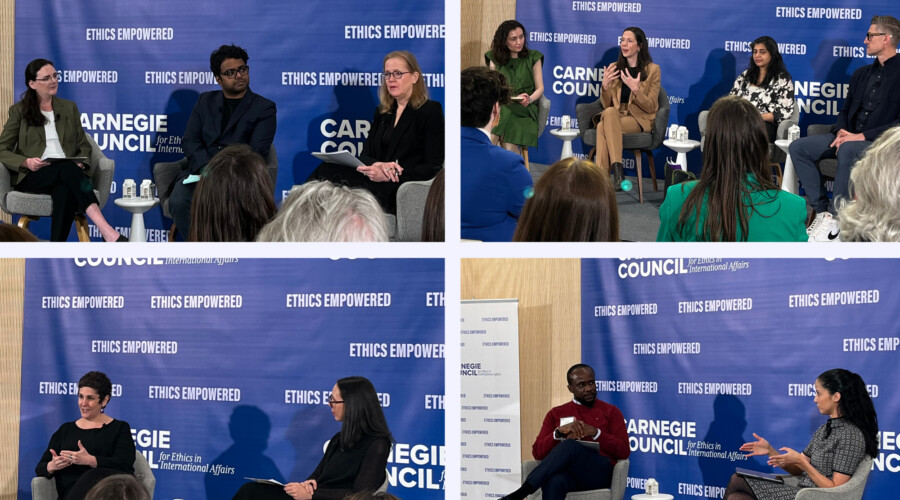Ethics & International Affairs is pleased to announce the publication of its summer 2013 issue. This issue features an essay by Deen Chatterjee on human rights and the liberal conundrum; a Carnegie Council Centennial special roundtable on international peace, with contributions by David C. Hendrickson, Akira Iriye, Nigel Young, Laura Sjoberg, and Andrew Hurrell; a review essay on the Arab Spring by Nader Hashemi; book reviews by Daniel Deudney, Andrew G. Reiter, and Helen M. Kinsella; and a response by Ruti Teitel.
ESSAY Building Common Ground: Going Beyond the Liberal Conundrum Deen Chatterjee To stay viable as a political ideology, liberalism needs to show that it can remain true to its universal norms while being responsive to cultural complexities and differences. In this essay Chatterjee claims that liberalism can indeed be both substantive and negotiable as it faces the increasingly vocal challenges of diversity.
ROUNDTABLE: REFLECTIONS ON INTERNATIONAL PEACE Free for a Limited Time!
International Peace: One Hundred Years On David C. Hendrickson Americans have registered one set of lessons too well—those deriving from the 75-year war against German imperialism and Soviet communism. They have forgotten, or want to forget, another set of lessons—those deriving from the history of U.S. involvement in the Philippines and Vietnam, in Nicaragua and Panama, and on to Afghanistan and Iraq.
Peace as a Transnational Theme Akira Iriye To consider war and peace purely in the context of international relations, therefore, is insufficient, even anachronistic. What we need is less an international than a transnational idea of peace.
Concepts of Peace: From 1913 to the Present Nigel Young The Great War and its imagery imprinted itself on the human imagination. In poetry and prose, photography, art, film, and other modes of expression, its influence on cultural memory and identity, on modern meaning and human sensibility, has been remarkable. Viewing Peace Through Gender Lenses Laura Sjoberg Feminist theorizing of peace suggests a number of transformative observations. Feminist perspectives focus a critical lens on the meaning of peace, often making invisible violence visible; help to critically interrogate the role of the United States in furthering "peace" in the international arena; and make different theoretical and policy prescriptions than perspectives that omit gender from their analyses.
Power Transitions, Global Justice, and the Virtues of Pluralism Andrew Hurrell Today’s optimists stress the degree to which globalization appears much more firmly institutionalized than it was a hundred years ago, the rather striking success of global economic governance in responding to the financial crisis of 2007–2008, and the longer-term trend within international society to move away from major-power war. Pessimists are less sure.
REVIEW ESSAY [FULL TEXT] The Arab Spring Two Years On: Reflections on Dignity, Democracy, and Devotion Nader Hashemi The demise of long-standing dictators has shaken the foundations of authoritarianism in the Middle East and North Africa.
REVIEWS [FULL TEXT] Liberal Leviathan: The Origins, Crisis, and Transformation of the American World Order by G. John Ikenberry Review by Daniel Deudney This book masterfully draws on history, advances international relations theory, and illuminates foreign policy choices.
Judging State-Sponsored Violence, Imagining Political Change by Bronwyn Leebaw Review by Andrew G. Reiter Leebaw argues that two competing frameworks have come to dominate the field of transitional justice. The first stresses the promotion of law, trials, and individual criminal responsibility in the aftermath of atrocity, while the second focuses on repairing society and healing the wounds of the past.
Sex & World Peace by Valerie M. Hudson, Bonnie Ballif-Spanvill, Mary Caprioli, and Chad F. Emmett Review by Helen M. Kinsella Sex & World Peace clearly and forcefully lays out the links between women’s security and international and domestic security, thus providing a clear template for change.
RESPONSE [FULL TEXT] A Response to Martti Koskenniemi’s Review of Humanity’s Law Ruti Teitel In my book, I set out not to praise humanity law but to understand the phenomenon that Koskenniemi admits is real—that is, the ascendancy of humanity-based discourse "in diplomacy and international institutions."
BRIEFLY NOTED Thinking the Twentieth Century by Tony Judt with Timothy Snyder Diagnosed with a terminal illness that made the use of his hands impossible, the eminent historian and public intellectual Tony Judt agreed to an unusual project: a series of free-flowing conversations with fellow historian Timothy Snyder.
End This Depression Now! by Paul Krugman It has been five years since the crash of the U.S. housing market plunged the global economy into a deep recession. Drawing on the insights of economists such as John Maynard Keynes and Hyman Minsky, Krugman explores why the latest crash occurred and what we can do about it.



